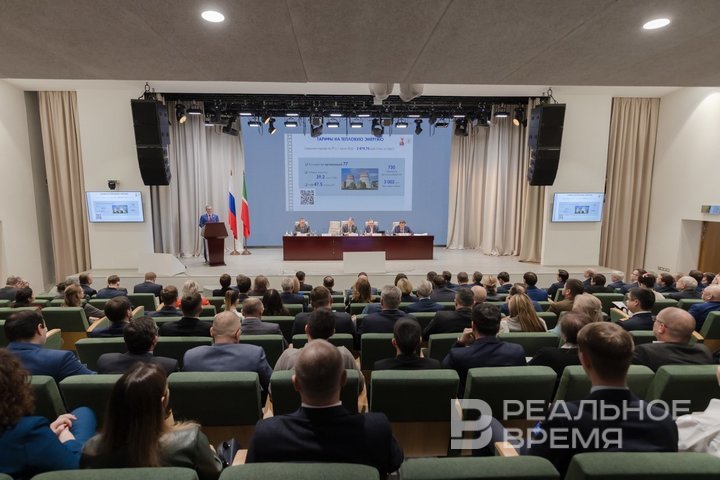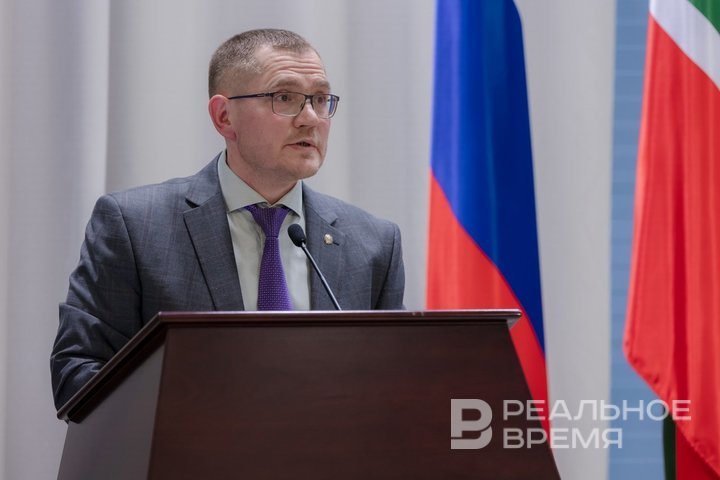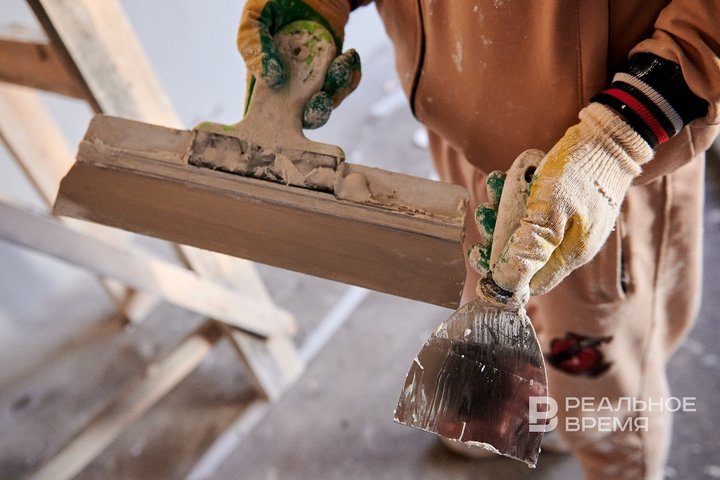Tatarstan wants to oblige Russians to pay for utilities in digital rubles
The initiative was put forward by the State Committee on Tariffs and the State Housing Inspectorate of the Republic of Tatarstan.

Alexander Grunichev, from the Tatarstan State Committee on Tariffs, proposed the introduction of a single payment method for utility services at the final board meeting. Alexander Tygin, the head of the State Housing Inspectorate of Tatarstan, who spoke at the meeting, supported this idea and laid out a package of proposals on the introduction of new standards of tariffs for utilities services. Later, answering questions from a correspondent of Realnoe Vremya, he made it clear that he did not plan initiatives to adjust housing legislation in terms of increasing responsibility for the “unbundling” of apartments. Read the details in the material of Realnoe Vremya.
Buy a smartphone and ensure transparency for the state?
The main argument in favour of such a means of payment as the digital ruble was the transparency of payments, the lack of which the population complains about.

“At the same time, the state gets direct access to information and transactions of people and businesses, which makes the sphere more controlled," Grunichev emphasised.
But later, answering a Realnoe Vremya correspondent's question about how the digital ruble would help apartment owners make their money more transparent to management companies, Grunichev clarified that this payment method would only allow regulatory authorities to trace the entire payment chain from the owner to the management company.

The question of how, if this scheme is adopted, those who do not own digital technologies will pay for utilities services remains unclear. In addition, citizens have the right to choose a payment method — both cash and non-cash, it is stipulated by the Law of the Russian Federation “On Consumer Rights Protection”.
There are more complaints, fewer claims for charges
Alexander Tygin, the head of the State Housing Inspectorate of Tatarstan, also advocates introducing at the legislative level the obligation to pay for utilities services using a digital ruble, that is, exclusively by wire transfer. He devoted his speech at the board to the problem of the growing claims of the population and regulatory authorities against management companies and ways to solve problems in the utilities services of the republic.

Tygin said that 970 residential apartment buildings in the Republic of Tatarstan are “actively moving towards their condition of emergency” and stated that in 2024 the number of complaints to the State Housing Inspectorate increased by 35% compared to the previous year. But at the same time, he noted that “for the first time, with surprise, there has been a decrease in the claims of the population for charging fees," in his opinion, thanks to the joint work carried out by the inspectorate, the Tariff Committee and the Antimonopoly Service.
In 2024, the State Housing Inspectorate, monitoring the implementation of the overhaul program, revealed 879 violations committed by the Utilities Services Fund of the Republic of Tatarstan and almost all the regulations were fulfilled by the regional operator, although some, according to Alexander Tygin, were only formally fulfilled. And in 20 cases, the State Housing Inspectorate had to go to court to ensure that her demands were met. As a result, the regional operator received 14 fines — for a total of 140,000 rubles.

Tygin particularly noted violations regarding the accumulation of funds for capital repairs:
“We see that almost 50% of the funds that should accumulate in the accounts do not even reach the accruals… We have 1,200 special accounts, we see 2.5 billion in the balance, taking into account that we do not see almost 4 billion. This means that some amount of funds has not yet been credited to the “every home, every personal account” section, and the inspection cannot report on how they were used.
The State Housing Inspectorate revealed the misuse of capital repair funds held in special accounts in the amount of 53.6 million. And three times the amount of money in the account of the regional regional operator — 153.2 million rubles — goes under the heading “improper accounting of funds.”
Document is the same, Tariffs are different
Alexander Tygin recalled that the structure of the single payment document, the invoice, which homeowners receive to pay for utilities services, had changed.
And the head of the State Housing Inspectorate also announced the structure of payments for utilities services — today 33% of them are utilities, 5% are capital repairs and 62% are housing services — the very ones whose structure is not really known to the owners, and the principle of spending money is unclear.
“We are very much embarrassed that the issuance of payments in a single payment document, the application of tariffs in various forms, with and without snow, remains completely unpunished in the civil sphere today," said Tygin.
New standards versus old problems
The Chief State Housing Inspector announced his proposals to remedy the situation by introducing new standards of tariffs for utilities services:
- — to adopt in 2025 a single standard for setting fees for housing services, mandatory for use from 2026 by owners, management organisations, and local governments, with appropriate amendments to the utilities services of the Russian Federation;
- — to establish the amount of payment for housing services, taking into account the differentiation of apartment buildings (for example, by type, year of construction, number of floors, adjacent territory), all economically justified expenses necessary for the proper maintenance of the house;
- — to provide at the legislative level for the possibility of paying for utilities services exclusively by wire transfer (using a digital ruble);
- — to provide for the possibility of reporting to GIS ZHKH on the applicable fees for housing services for each house;
- — to introduce administrative liability for violation of the requirements of housing legislation. .
At the same time, when asked by Realnoe Vremya what proposals the State Housing Inspectorate leadership has for legislative tightening of responsibility for another problem — the “unbundling” of apartments to smart sizes with the subsequent sale or rental of mini-apartments under the guise of rooms, Alexander Tygin replied that for now the activities of the supervisory authority will be aimed at combating hostels. In the multi-unit apartment building, they say, it is in this area that the inspectorate has the greatest rights and opportunities.